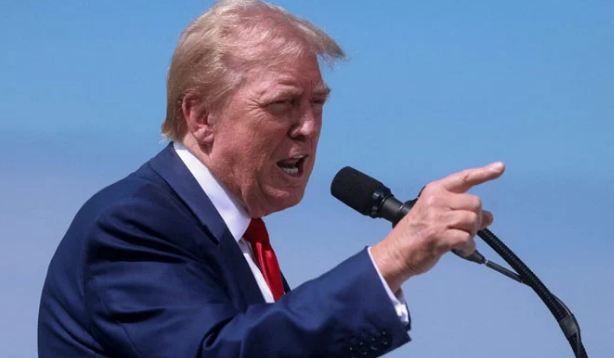WASHINGTON: United States President Donald Trump’s brief post-election momentum appears to be waning, as his approval rating has steadily dropped from 47% to 43%, according to Gallup.
The dip comes as Americans react to his administration’s early moves, including the controversial Project 2025 agenda, proposed market-disrupting tariffs, and unusual policy interests— from acquiring Greenland to reshaping US influence in the Gulf.
Despite previously distancing himself from Project 2025 during the campaign, Trump’s swift embrace of its policies has raised concerns, potentially alienating voters and dampening initial support for his presidency, a Vanity Fair correspondent wrote.
According to the publication, Trump’s recent policy decisions, including the proposed renaming of the Gulf of Mexico, discussions about Greenland, and a tariff-heavy trade approach impacting Canada and Mexico, have contributed to a decline in public approval.
Additionally, the government spending cuts have raised concerns, particularly regarding funding for medical research on cancer and Alzheimer’s.
A Harvard-HarrisX poll suggested that billionaire Elon Musk, who has been influencing federal agencies under Trump’s administration, has also seen his favourability rating drop by 10 points from February to March amid ongoing Tesla protests.
Public dissatisfaction with Trump’s leadership is evident across multiple key issues. A recent Associated Press–NORC Center poll indicates that only 38% of Americans approve of his handling of trade negotiations, 40% support his economic policies, and 41% back his approach to the Russia-Ukraine war and Social Security. Immigration remains his strongest-polling issue, with 49% approval.
Despite entering office with relatively strong public backing, Trump’s policies have drawn widespread scrutiny, signaling increasing concerns about his governance.
Furthermore, the publication wrote that the Trump administration is facing increased scrutiny following the emergence of the so-called “Signalgate” scandal, in which National Security Adviser Mike Waltz reportedly created a Signal group to discuss classified Yemen attack plans.
The group included 17 government officials, among them Vice President JD Vance, Secretary of State Marco Rubio, and Secretary of Defense Pete Hegseth — alongside Atlantic editor-in-chief Jeffrey Goldberg, whose inclusion has drawn significant attention.
While the White House has downplayed the incident, a CBS News–YouGov poll found that 76% of Americans, including 56% of Republicans, believe discussing military operations on an unsecured app was inappropriate.
Despite growing criticism, Trump has refrained from taking action against Waltz, reportedly asking allies whether he should remove him but ultimately deciding against it to avoid appearing to yield to media pressure.

















